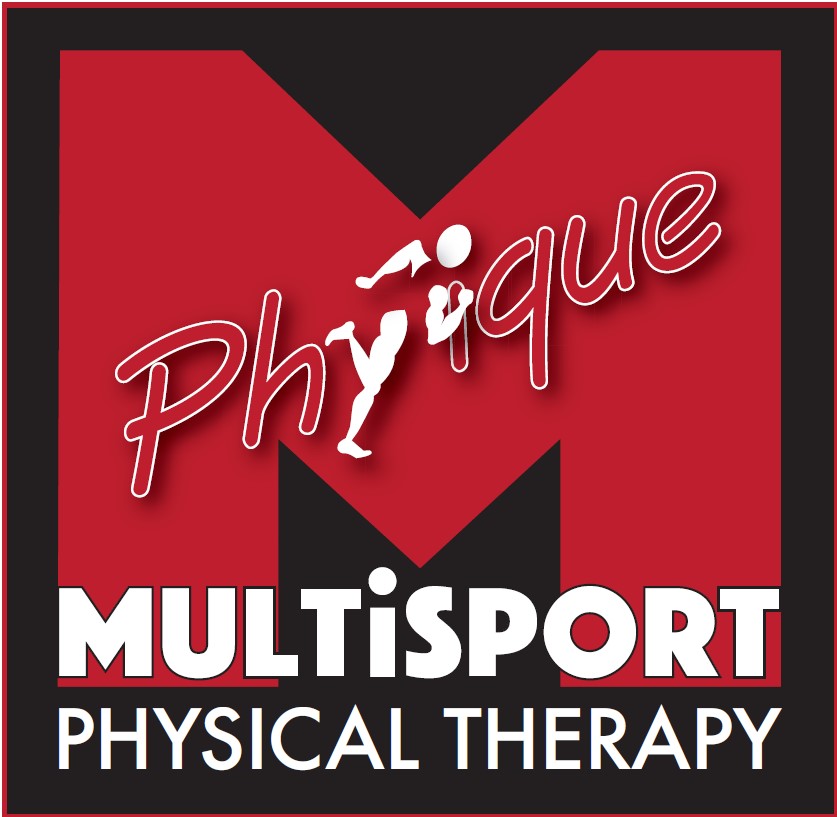Eric Rehberg
I had the pleasure recently of talking triathlon with the TCSD’s very own Eric Rehberg. I’m certain you will enjoy getting to know Eric through our Ironman Conversation.
CZ: What was your athletic background before your first triathlon?
ER: I played ice hockey in high school and college, but took to running and biking ever since I was little. I loved to run with my Dad and take long rides out in the country on my bike.
CZ: What was your first triathlon like?
ER: 2000 I was on deployment in Guam with the U.S. Navy. I had a guy in my detachment who was a really into triathlon. He packed his rollers and Litespeed Blade (I remember laughing when I heard how much he paid for that bike) and all his gear. I had packed a rusted out Specialized mountain bike and my surfboard. Half way through deployment I was talked into a triathlon sponsored by Bud Light on Guam, I figured an easy little workout and a few beers at the finish. Easy day.....
So off we went. Him on his Litespeed and tri-suit and me on a rusted mountain bike and running shorts. Turned out, it changed my life instantly. I raced and loved it, and funny enough I won the thing on my crazy rusted mountain bike. There were a few laughs over that one. OK, so there were only 25 competitors or so. A win is a win, right. That night I was on eBay looking for a tri-bike to order for when I got back to San Diego.
CZ: You did Ironman Hawaii in 2005.
ER: Absolutely amazing! There are hardly words for that feeling when you cross the finish line of your first Ironman. For me, it was double the emotion as it was also Kona. I was very fortunate to be given the honor to represent the U.S. Navy on it’s team that competed in 2005. I was very intimidated by the list of competitors. I was way out classed by their previous performances. I also had never completed the distance before. Talk about pressure. I had done plenty of Half-Iron distance races, so I figured, do the same thing but more. It kind of worked. If there is one thing I learned - experience counts for a big piece at those races. I had a lot to learn. Fortunately for me, I was blessed with one of the most benign and perfect days you can get at Kona. My only goal was to: #1 finish, #2 beat at least one other military competitor (ok so I do have a bit of a competitive streak), and #3 have fun doing it. I was actually amazed at how fun the race could be, out of shear fear I had held back on the bike because I heard so many stories of dying on the run. Once I hit the run I was in heaven. I had never seen so much food! It was awesome, every mile a feast. My wife (fiancée at the time) was also able to make the trip, making the whole experience incredible. In fact, at one of the U-turns in the beginning of the run on the Queen K, she came out on the course and gave me a big hug and kiss, the crowds of people went completely crazy and I don’t think my feet hit the ground for the next 5 miles.
The preparation was not too bad physically, however, the long hours make you feel guilty for all the time taken away from the family. I must admit I did not have a great workout plan but ensured that I did plenty of long everything. Surprisingly my estimates for each event were fairly accurate and I was able to stay on track throughout the race without feeling like I was taking too much risk in any one event. I was very happy with my finish, see goal #1, and my time (11:11) was enough to take care of goal #2, turtle and the hare story was very relevant in my case, and it was an absolute blast to be part of such an incredible event, score goal #3.
CZ: Your wife, Lisa also does triathlons. What is that like to share the multi-sport experience with your spouse?
ER: This is the greatest part of our involvement in sport. We met through sports and train and race together. What a convenient and cool thing to share with your significant other. We never feel guilty or selfish taking time to train because usually we are doing it together. We provide each other great motivation. Those days you just don’t feel like getting up to train in the cold morning it helps to have someone there to push you out of bed. Of course it is usually me that needs the pushing! In the beginning of each year we pull out the calendars and start the planning process. We are pretty close on what events we would like to do, but there is still a little horse trading that goes on. The nice part is we can also tie a few trips into really nice vacations (family and friends think we are nuts). For example we did Half-Vineman one year and post race turned into a great excuse for staying up in the wine country to “recover” for a few days. We also took a group up to San Francisco and did the Alcatraz Challenge on Lisa’s birthday. This year we are all set to go do Ironman Arizona (II) in November. It will be special as it is Lisa’s first IM and it just happens to fall on our anniversary. Next year I am pushing for St. Croix, Cancun, or Western Australia.
CZ: I got to meet you through the Superfrog Triathlon. What is that event like?
ER: Near and dear to my heart, the Superfrog Triathlon. This year we are celebrating 30 continuous years of the Superfrog on April 6. In addition, we are adding an International distance race the same day called the Superseal. In 1978 Navy SEAL Philip “Moki” Martin upon hearing stories about this Ironman thing in his home state of Hawaii decided he should develop a race to prep himself and other Navy SEALs to tackle Ironman. The SEALs, situated in a great location on the beach at the Silver Strand were use to long swim-runs in their daily physical training so it seemed like a logical progression. So Superfrog 1 was born with an ocean swim on the Strand, a bike out to Otay, and a run around Coronado. It was a great success and has been running and growing since. Thanks to Moki, Superfrog has kept its roots close to the original concept. It has never been about making money. It was about the “guys”. For years it remained a contest among SEALs with special “team” competitions to determine the fastest command. Also, special invites were handed out to the budding professional community and local “tri” club, the Horny Toads. Since then, thanks to the Navy we have been able to grow the number of civilian participants to the point where it is about equal military and civilian. I feel it is a great opportunity to bring in people to see and be around a special group of people and experience a piece of Naval Special Warfare. This year we are taking a big leap and teaming up directly with the Naval Special Warfare Foundation (NSWF) so that all our proceeds will go directly to this 501-C Charity and help a lot of people. The NSWF raises money to help the families of those NSW operators killed during combat or training. It has been an especially hard few years for NSW but the foundation has done great things for these special families. For more information go to www.NSWFoundation.org and for more information on SUPERFROG/SUPERSEAL go to www.superfrogtriathlon.com
CZ: What is your favorite triathlon story?
ER: 2006 Superfrog was a big year for us. We had teamed up with the SEAL/SWCC recruiters and they were going to film the Superfrog for prime time viewing. It was great to hear, but added a lot of responsibility with three mobile camera crews and a helicopter to add to an already chaotic event. The event was a great success and the film crews did an awesome job. Unfortunately they missed one of the coolest stories I have heard in triathlon. There was an entrant named Mark Coburn. He was a great athlete and SEAL and had done quite a few Superfrogs in the past. Unfortunately a few years ago he had a skydiving accident and suffered brain damage. It has been a long, hard recovery for him and when he approached us and asked if he could enter we were a bit concerned. Turns out he still has unpredictable and severe seizures. Still Mark was adamant that he get to do the race. Moki, knowing all about persevering let him enter though he was under the same time limit constraints as anyone else. We truly did not think he would finish as Mark cannot run very well anymore and has a distinct limp. Fast forward to a long wonderful day of competition, we were in the middle of the awards ceremony and the announcer broke in to count down the end of the race. All of a sudden around the bend of the road comes Mark Coburn, with all but a few seconds left he crossed the line with a huge smile on his face dragging a giant clump of kelp caught on his leg and there was not a dry eye in the whole place. The crowd went nuts. I realized then that the true heart and spirit of competition was alive and well in triathlon.
CZ: What is your favorite part of the Triathlon Club of San Diego?
ER: The people! They are incredible, motivated, helpful, and conscious of the community at large. How many times does someone send an email asking for information or help and get tons of replies?
CZ: Who is your triathlon hero and why?
ER: That would have to be Philip “Moki” Martin. He is the man! Moki, was part of the old guard culture during the birth of triathlon. I think back to heavy steel bikes, one brand/style of running shoe, no lycra, diving/surfing wetsuits or none, there were quite a few obstacles. Basically it was a bunch of lifeguards, military, and basic nut jobs looking for a good workout before they started drinking a few beers (or all of the above at the same time). There is this picture of a bunch of guys sitting around making up a course and they just keep adding to it. What seems like a good idea at the time turns out to be one heck of a tough race. Those guys and gals back then toughed it out and created something. No frills, no support (self support), homemade t-shirts, trophies made from garage sale finds. The true spirit of competition was born and people like Moki brought forward into the future.
For those that don’t know his history, Moki is a retired Navy SEAL with five combat tours in Vietnam. In his day, one of the best all around athletes (that’s what they called the multi-sport bubbas back then), I just call it AADD, Athletic Attention Deficient Dysfunction. Anyhow, in the peak of his athletic lifestyle Moki was in a head on collision on the Silver Strand with another bicyclist. One walked away and Moki was paralyzed from the neck down. That was many years ago and it is an inspiration to me to see the dedication and desire that Moki has maintained and how he created and gave so much to all those future triathletes that have come and gone and those yet to begin the sport.
CZ: Who is your life hero and why?
ER: Simple as it may seem I have to go with my parents. From my early years they fed and supported my insatiable hunger for sport activities and all the crazy ideas I came up with. I remember to this day running in the neighborhood with my Dad and how at the end of each run we would sprint for the finish. It was always an intense, so I thought, neck and neck battle that magically I always would win at the end. It took me years to figure out he let me win the whole time. Now I get to pass that feeling on to my own kids, who get just as excited.
Then there is my Mom. When my Father passed away a few years ago it was very hard on her. They were inseparable and did everything together. It could have been very easy to give up on things, but instead at age 70 she became hooked on cycling and works out everyday with a personal trainer at the gym. She has never been so healthy and is a great inspiration that you are never too old to benefit from the pleasure and pain of good hard training.
CZ: What are your triathlon goals for 2008 and beyond?
ER: Surviving Superfrog. I have a new found appreciation for anyone crazy enough to be a race director. It is like being a wedding planner for 1,000 crazy athletes, trying to make a quality and safe event, keep it challenging and still make everyone happy. I am very pleased we are adding a shorter distance event and I look forward to watching the next generation grow to enjoy this sport that I love so much. Also providing a role model for our kids and showing them the benefits of a healthy active lifestyle. My parents were both teachers and have instilled in me that if you love something, it is your responsibility to pave the way for the next generation. I would really like to see myself in the future finding a way to embrace the younger athletes out there and provide them the opportunities to enjoy the sport of triathlon. As for racing, I think Lisa and I will continue to find good excuses for vacation races well into the future.
CZ: Thank you for sharing your story. I wish you and Lisa the best of luck this year and beyond with achieving your goals. I can’t wait for Superfrog and Superseal! Those are events that are MUST DO’s in our sport.
ER: Thank you, Craig, for giving me a chance to take a closer look at myself and the sport I have come to truly appreciate.









